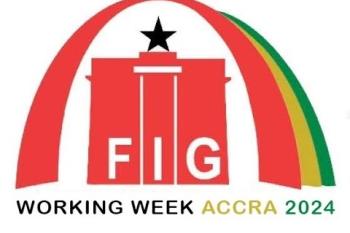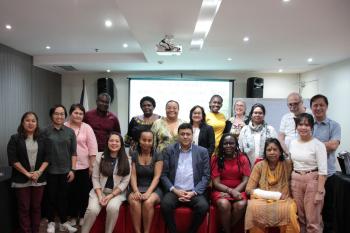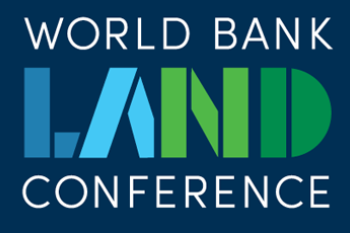
GLTN Land Tools: Training of Trainers for GLTN Partners in the Democratic Republic of Congo
“Do as little as you can but as much as you need to fit the purpose”
This was the chorus among all participants in the recently concluded four-day training of the trainer session championed by the Christian Bilingual University of Congo (UCBC). In the quest to fulfil and deliver land reforms in the Democratic Republic of Congo (DRC), implementing partners of the Global Land Tool Network (GLTN) are inspired to gain relevant training on GLTN land tools. This was affirmed in the training held in Nairobi, Kenya, targeting technologists, land information system and GIS experts, and data security personnel. In addition, a chief land administrator from Lubumbashi and a land surveyor from the Ministry of Land Affairs in Kinshasa took part.
The aim of the training was to equip the trainees with knowledge and skills on the use and application of GLTN land tools, specifically the Social Tenure Domain Model (STDM) coupled with the Continuum of Land Rights and Participatory Enumeration, for adoption and adaptation within DRC programmes on land reform. Other land tools presented included Gender, Conflict, Youth, Transparency and Pro-poor Policy, as well as Land Indicators and Fit-for-Purpose Land Administration.
After the training, when asked how they would use what they had learnt, Ahadi Gracien, one of the participants said, “I will be an evangelist of GLTN tools in all my interventions”. At the close of the training each of the participants drafted a personal action plan on the adoption and use of STDM and other land GLTN tools in their work. Plans included building a Land Information System in Mambasa, Ituri Province, in order to lay a foundation for a new national land policy in the DR Congo. Thus, Ahadi added, “I will be like a bridge between land administration surveyors and the GLTN tools”.
On behalf of GLTN and UN-Habitat, UCBC acts as an implementing partner in the Central Africa Forest Initiative (CAFI) programme funded by the government of DRC. The CAFI programme, seeks protection and restoration of forests to fight climate change and implement land reforms in conjunction with the Ministry of Land Affairs.
The training was conducted from the 25-28 February 2019 in Nairobi, Kenya


